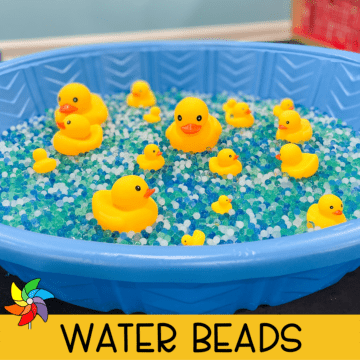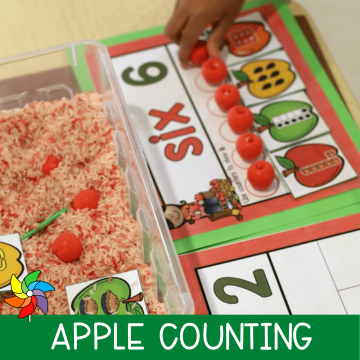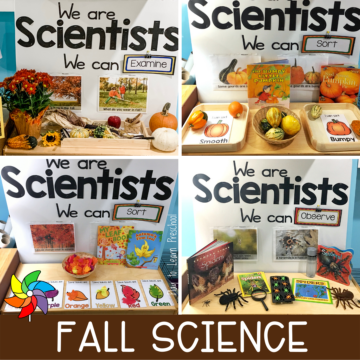This sink or float experiment is a preschooler’s dream! Students remain engaged in an inquiry-based learning project, full of surprises and sensory experiences that they will talk about all year long.
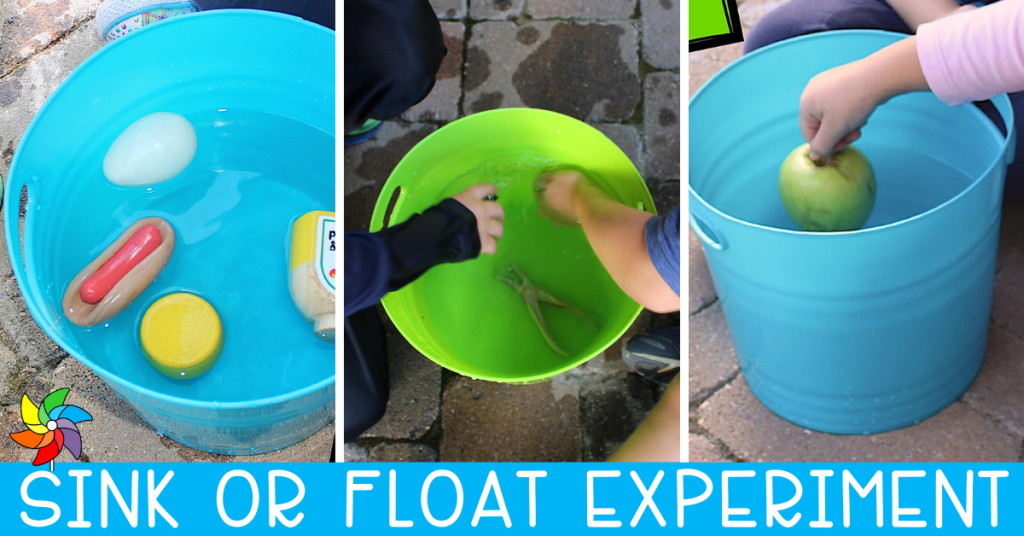
Predicting Outcomes in Preschool
Predicting is an exciting skill that comes with practice. In preschool, students predict what will come next in class based on the routines established throughout the year. They may also predict if their baseball team will win an upcoming game based on how they’ve played in the past. Recognizing what has previously happened to predict what might happen is a skill that can be put to the test in the preschool classroom in a number of ways.
- What will happen next in the story? (Predictable patterns are HUGE in preschool books!)
- What do you get when you mix red with yellow?
- Do you think sandpaper is rough or smooth? Which of your 5 senses helped you make that prediction?
Does It Sink? Does It Float?
This sink or float experiment is perfect for the beginning of the preschool year because it teaches important, familiar vocabulary (many students know the word float from swimming) and requires very minimal preparation. Begin by talking about the terminology (sink and float). Show a variety of objects and allow students to hold each one. Discuss predictions for each item. Why do you think it will float? (“It’s very light.”) Why do you think it will sink?
Ideas Items to Test:
- Apples
- Blocks
- Rocks
- Pencils & crayons
- Spoons (both plastic and metal)
- Lemons & Limes (Check out this cool article about these!)
Ask the students to make predictions and post them on a pocket chart tally marks or name cards. For each item, count the number of students who think it will sink versus the number that thinks it will float. This is an excellent time for a bit of math review using words like more or less.
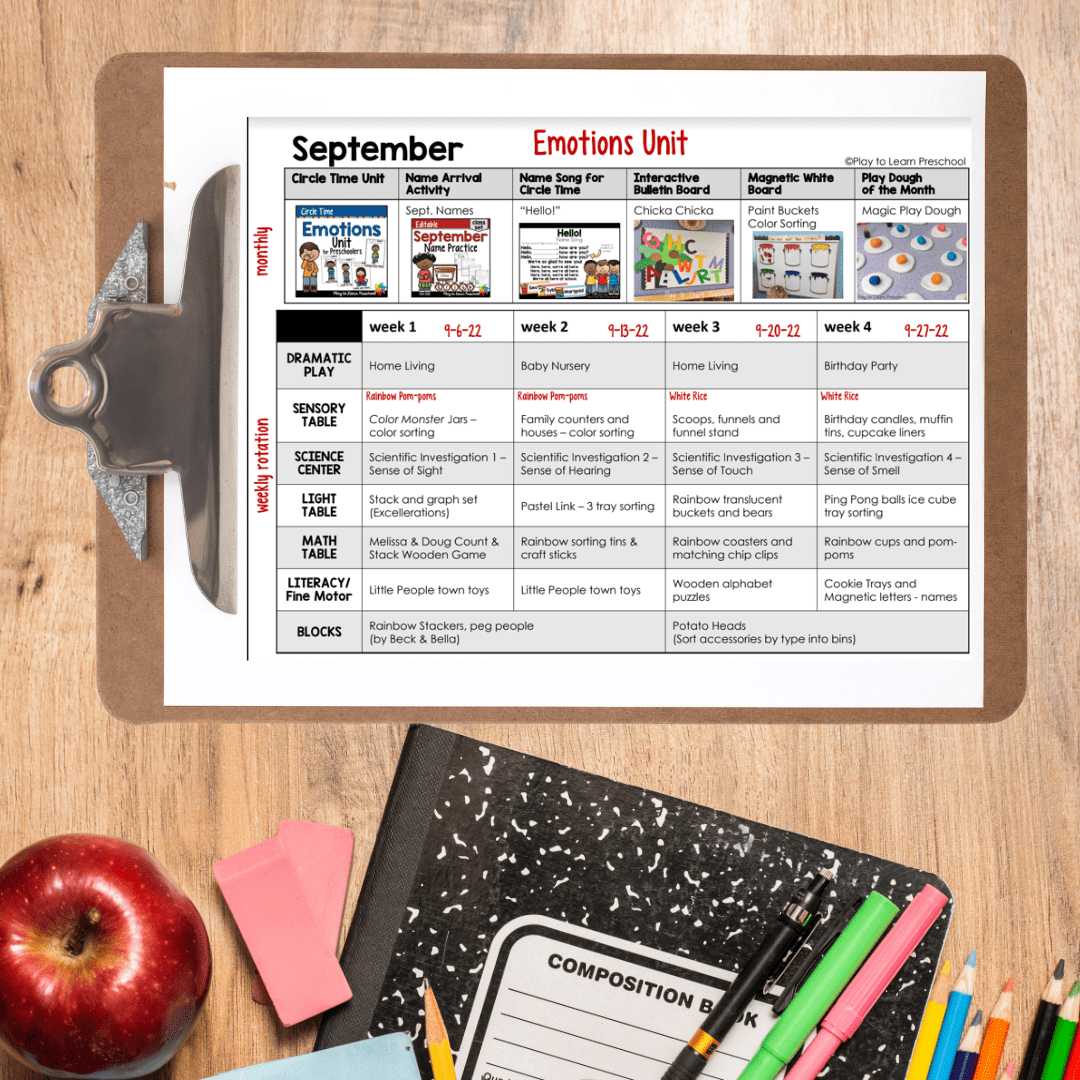
FREE Scope And Sequence!
After you subscribe, you will be redirected to the FREE Scope and Sequence. We respect your privacy. Unsubscribe at any time.
Let the Fun Begin!
Once predictions have been made, it is time for the fun to really start! If possible, take the experiment outside or protect an indoor area with a plastic table cloth as it will inevitably be a little wet. There is only a little setup and a few supplies needed to make this experiment one the students will not soon forget.
Supplies Needed for the Sink or Float Experiment:
- a bucket or tub of water
- items to test in the experiment
As a starting point, begin by allowing students to explore apples in the water. Exploration is a critical step in developing an understanding of a concept. Students may try and push the apple to the bottom, only to watch it float back up to the top.
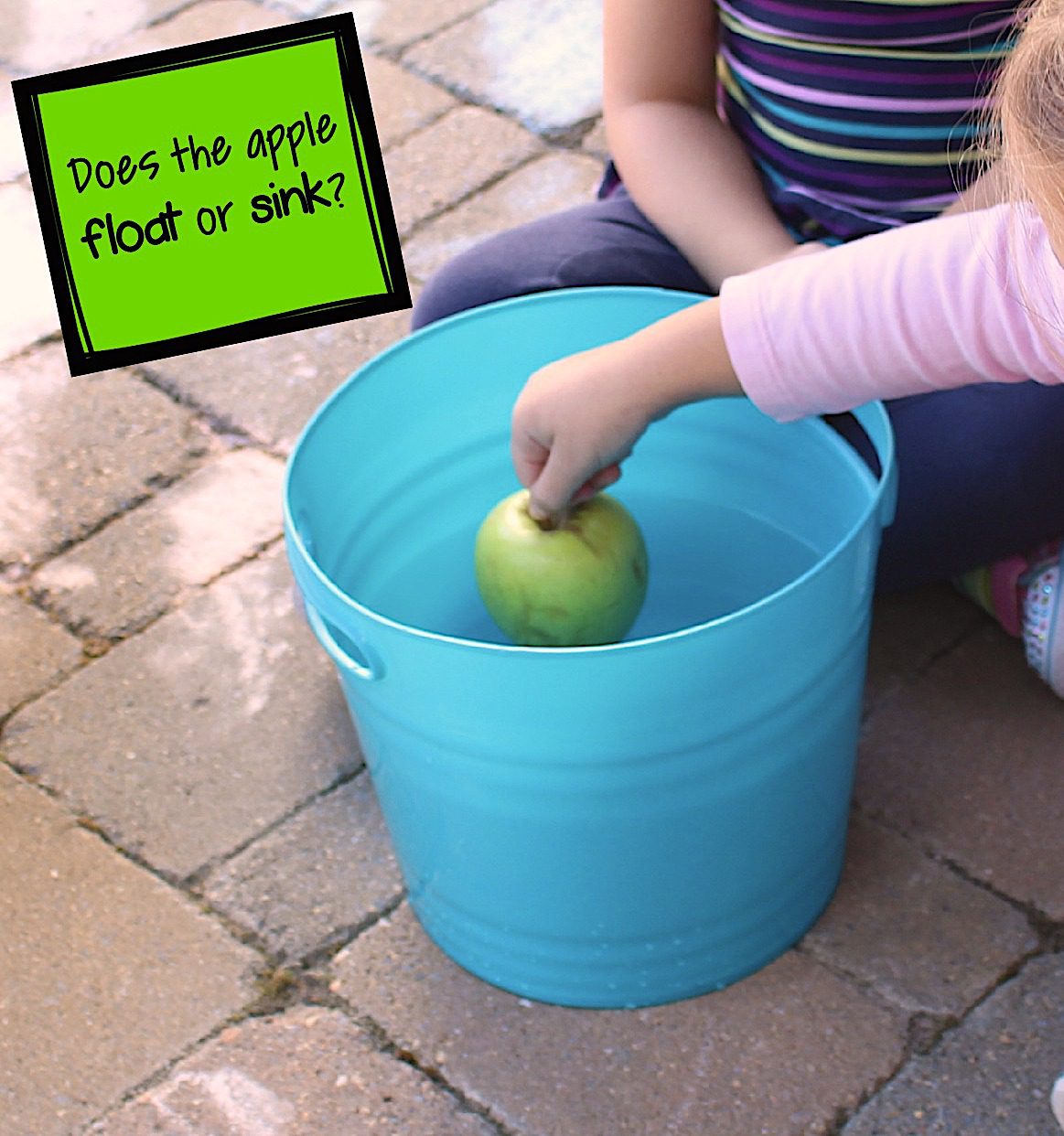
Does the apple float or sink?
Once students have explored the apples, come back and discuss what they discovered as a class. Were their predictions correct? Remind students that predictions are guesses, and it is okay if they guessed wrong – that’s how we learn! Some students may even begin to make connections such as “I knew it would float. I went bobbing for apples last year.”
More Sink or Float Experiment Fun
Once students have had a chance to explore the buoyancy of the apple, the next step is to extend the learning. Challenge the students to go back inside the classroom and find something else that would float. Discuss why they think it would float. Is it similar to the apple in any way? These discussions are great ways to build connections.
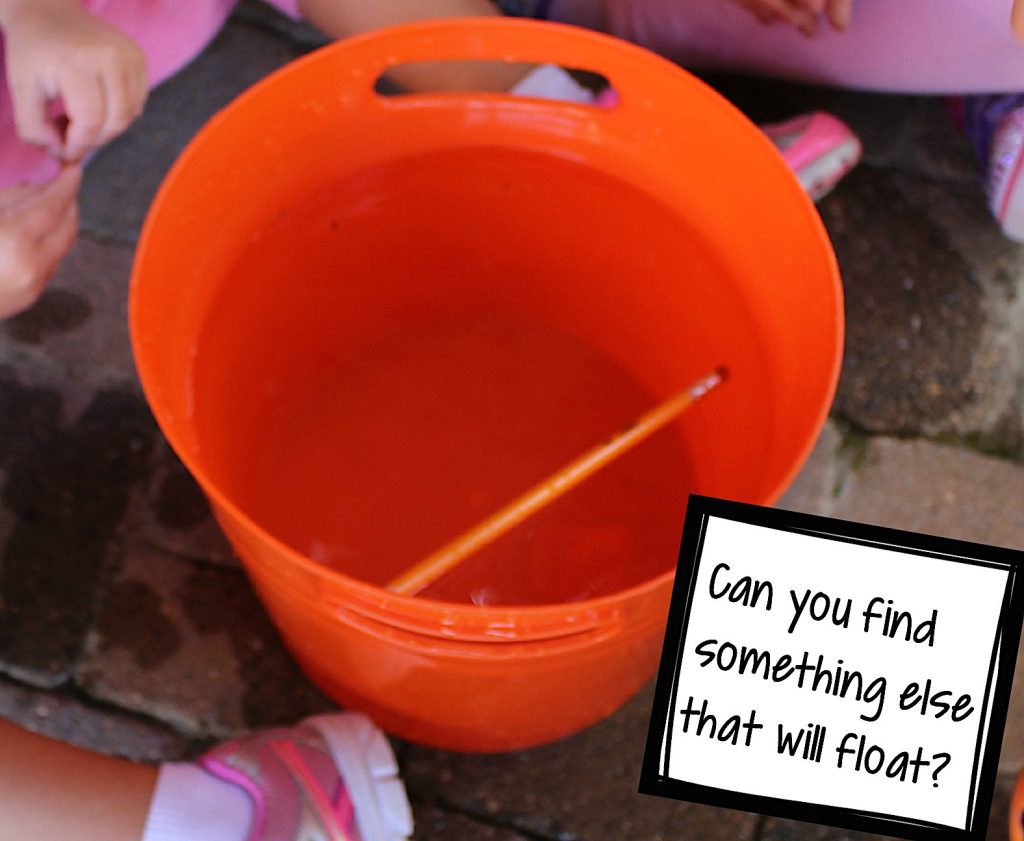
Next, ask students to find things that will sink. This can be a bit more challenging. Many of the heavy things in the classroom (blocks, for example) that the students think would sink are made of wood, which floats. Guide students as necessary, then allow them to continue to search for similar items as needed.
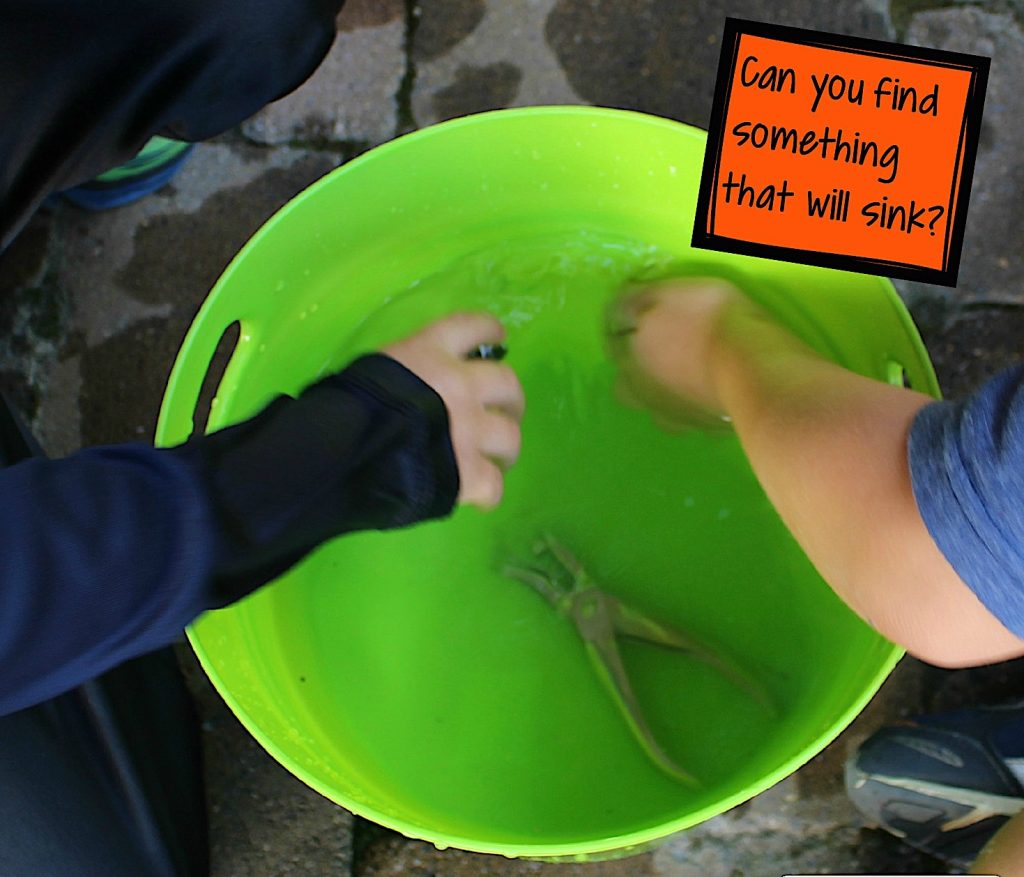
Other Preschool Science Experiments
Sometimes, teachers are intimidated by planning science lessons because it sounds like a big and complicated project. Preschool science does not have to be that way, though! Just exploring the world around them is enough to spark a curiosity that will build knowledge for years to come.
Check out this Resource from my Shop!
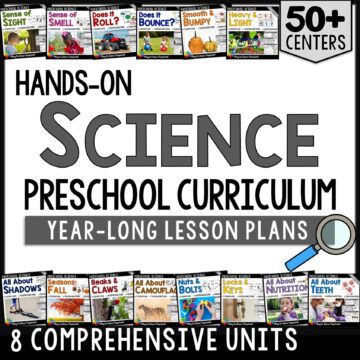
Preschool Science Centers for the Year
$99.00Students will enjoy hands-on SCIENCE CENTERS all year long. Each unit includes a list of supplies for each topic, learning objectives, lesson ideas, as well as photos and activities that students will want to explore again and again! Encourage young learners to ask questions, make observations, and develop scientific thinking skills.
